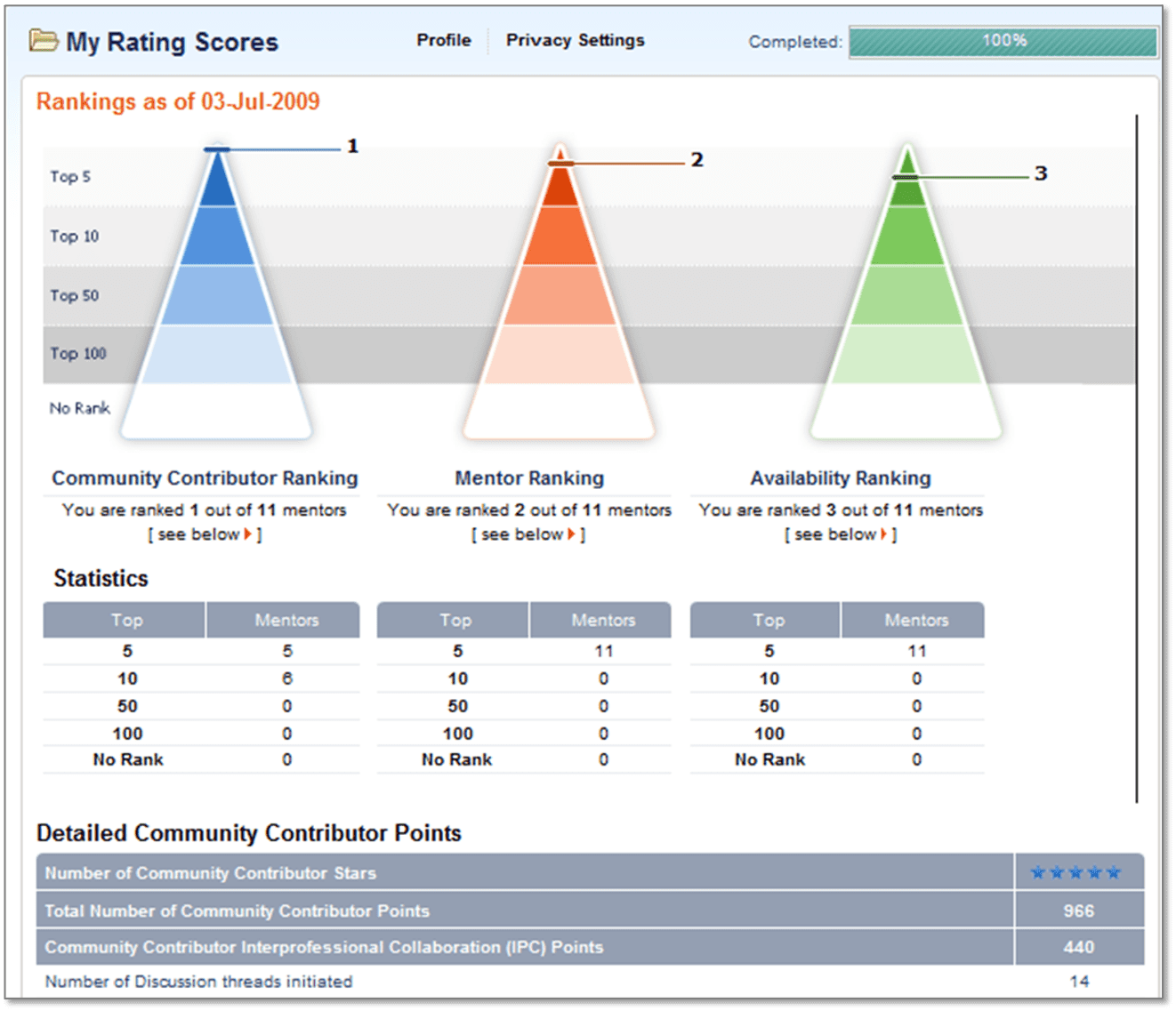
Things we learned to avoid when putting metrics in place for your mentoring program.
Part of the genesis story for Pollinate Networks Inc. includes “Platform 1”. This was the very first version of our mentoring and collaboration platform, built back in 2009 (!!) which seems like forever ago. I can admit now that we had a lot of learning to do around client-centred design, and the first platform was made based on “the world according to us and the learning and dev people we know”. And like good HR and OD people, we wanted to measure everything. We asked people to weigh in after every mentoring meeting. We wanted to know subtle changes to goals and asked people to log these. Far before our time, we even had mentor and mentee ratings so we could see the “top mentor” (and mentee).
and OD people, we wanted to measure everything. We asked people to weigh in after every mentoring meeting. We wanted to know subtle changes to goals and asked people to log these. Far before our time, we even had mentor and mentee ratings so we could see the “top mentor” (and mentee).
What we found was that participants found this constant observation and rating annoying at best, and an impediment to their mentoring flow at worst. Timing of the assessments was off. By asking people to rate each meeting, we were asking people to reflect when they hadn’t had a chance to consolidate the learning from their mentoring session.
This is one good example of what we learned through trial and error. To help save you from making similar misjudgements, here are a few other things we learned to avoid when putting metrics in place for your mentoring program:
DON’T Rely Solely on Quantitative Data (or Solely on Qualitative Data)
While quantitative data such as attendance rates and test scores are important, relying solely on them can miss the qualitative aspects of the program’s impact. Don’t overlook qualitative feedback from participants, mentors, and trainers, and find a balance between the numbers and the sentiments.
DON’T Ignore the Context
Every mentoring or training program operates within a unique context. Ignoring contextual factors such as organizational culture, participant demographics, and external influences can lead to misinterpretation of results.
DON’T Just Measure “Satisfaction”
You need to look at impact. Short-term metrics may not capture the full impact of the program. Neglecting to measure long-term outcomes, such as retention rates, career advancement, or sustained behaviour change, can provide an incomplete picture of the program’s effectiveness. Measurements should reflect perceived value, and active involvement.
DON’T Neglect Control or Comparison Groups
This applies particularly when you are measuring a program over many years. Without control or comparison groups, it becomes challenging to attribute changes or outcomes solely to the mentoring or training program. Neglecting to include control groups or comparison conditions can weaken the validity of the evaluation.
DON’T Fail to Align Metrics with Program Objectives
Ensure that the metrics used for evaluation align closely with the program’s stated objectives and goals. Mentoring is always purpose-driven. What was the purpose? Knowledge transfer? Engagement and support? Find ways to reflect your specific desired outcomes, rather than using a stock training evaluation.
Coming Up!
Later this month, join us for a discussion of Mentoring Scorecards. We’ll be hosting a short “lunch and learn” webinar on this same topic. In the meantime, if you are immediately interested in finding out more, reach out to us and we can help you with what you SHOULD do when measuring mentoring.
 Christy Pettit is Chief Executive Officer and Co-Founder of Pollinate Networks Inc.
Christy Pettit is Chief Executive Officer and Co-Founder of Pollinate Networks Inc.
For 25 years, Christy has developed new approaches and best practices for agile, effective organizations worldwide. She is an expert on matching people and organizations for applications including knowledge transfer and mentorship programs, flexible virtual and hybrid teams, and productive organizational and business ecosystems and networks.

 Christy Pettit is Chief Executive Officer and Co-Founder of Pollinate Networks Inc.
Christy Pettit is Chief Executive Officer and Co-Founder of Pollinate Networks Inc.


